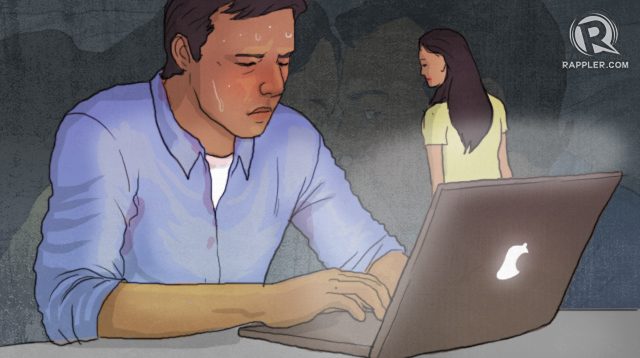SUMMARY
This is AI generated summarization, which may have errors. For context, always refer to the full article.
 In this edition of Clinical Notes, clinical psychologist Margarita Holmes delves deeper into the issues raised by a Two-Pronged reader who is navigating his relationship with a woman whom he feels might not be accepted by his family. The reader, Philip, also discloses that he has a “secret history of cheating and sleeping around.” This time, Dr Holmes also looks at the nuances behind why we seek approval from others.
In this edition of Clinical Notes, clinical psychologist Margarita Holmes delves deeper into the issues raised by a Two-Pronged reader who is navigating his relationship with a woman whom he feels might not be accepted by his family. The reader, Philip, also discloses that he has a “secret history of cheating and sleeping around.” This time, Dr Holmes also looks at the nuances behind why we seek approval from others.

I felt a need to add Clinical Notes to our Dec 7 column “My secret history of sleeping around, cheating” because much more needed to be said but wasn’t, mainly because of space constraints.
To Phillip, I would have written: “I appreciate your sharing the history of your relationship with Alma: how you had a (secret) history of cheating, sleeping around, and having f–ck buddies and howAlma turned you into a loyal person.
“I cannot help feel that THE major reason for your sharing the above was not to convince Mr Baer and me, since we would take you at your word. The more important goal was to convince your friends and family how good Alma is for you.
“It is wonderful that she is such a positive influence on your life. It is so romantic that you want to shout it to the world to celebrate your love.
“However, telling your friends and family all this comes across more like a plea. To translate: “(Please lang,) accept my relationship with Alma, because (and this is a fear I am sharing with you, not a threat I am making) I feel that if we don’t end up together, I would just go back to my old habits.”
Pleas like the above are what children say to people who have power of them. You don’t need to make pleas like that if you are an adult. An adult tells people his decisions and choices, no matter how important these people are to his life. He does not need to beg for their approval. He knows he will be ok even without it.
In the 2001 article “Evolution and social anxiety. The role of attraction, social competition, and social hierarchies,” the author, Dr. Paul Gilbert, wrote: “It is necessary to understand that fear of evaluation has to do with finding some relationships important (as opposed to social anxiety in animals which is about the fear of physical injury or attack).”
“People have evolved to compete for good impressions because these are related to eliciting important social resources and investments from others. Being given a low social rank (for example, for choosing an “unfit and/or undesirable partner”) carries many negative consequences for controlling social resources.”
Some people try to elicit approval and investment from others because they see themselves in a one-down decision. People who feel inferior to others usually do one of two things:
1.) They either try to appear more confident and secure than they really are, or, 2.) what seems to be more common in the Philippines, show their jugular to reassure that they are in a supplicant position and their friends and family do not need to fear them.
Thus, they would typically send a plea for friends and family to accept their significant other.
What follows below is not research, but a 2015 article written by Laura Jane Williams called “The Way To Find Adult Happiness Is To Stop Seeking Parental Permission.”
She says exactly what (ahem) I do, but in a much more powerful way.
Let’s take a look at these lines:
“I fucked up the other night. I fucked up because I sought out my parents’ approval on a decision I’d made.
“I don’t normally reach out to mum and dad to say, ‘Hey – I’m thinking of doing this particular thing, what do you think?’ The way I’ve found works best for us, as a unit, is when I go to them and say, ‘Hey, this is happening!’ and put absolutely zero investment into their agreement (or not) with my action. I presume they’ll be thrilled for me, and if they’re not I’m doing it anyway.”
“There’s no respect lost because they see things differently. I’m not invested in their approval.”
In other words, Ms Williams declares rather than pleads.
I realize our culture does not encourage us to be this independent, but in my clinical experience, a happy, secure adult is one who listens to his parents and respects their insights, but does what he thinks is best anyway.
To use Laura Jane Williams words, “because of this approach, I believe the relationship I have with them is one of the healthiest and most courteous parent-relationships that it is possible to have.”
So, returning to Phillip’s case, he should declare to all and sundry that “Alma and I love, and are in love with, each other. Come hell or high water, or disapproval from anyone, this is how we’ll be for the rest of our lives. ”
I think any woman would prefer, and his friends and family would definitely respect, the latter.
So do I, actually. And I can’t help hoping that people in a similar position to Phillip finds this a do-able alternative. – Rappler.com
Add a comment
How does this make you feel?
There are no comments yet. Add your comment to start the conversation.